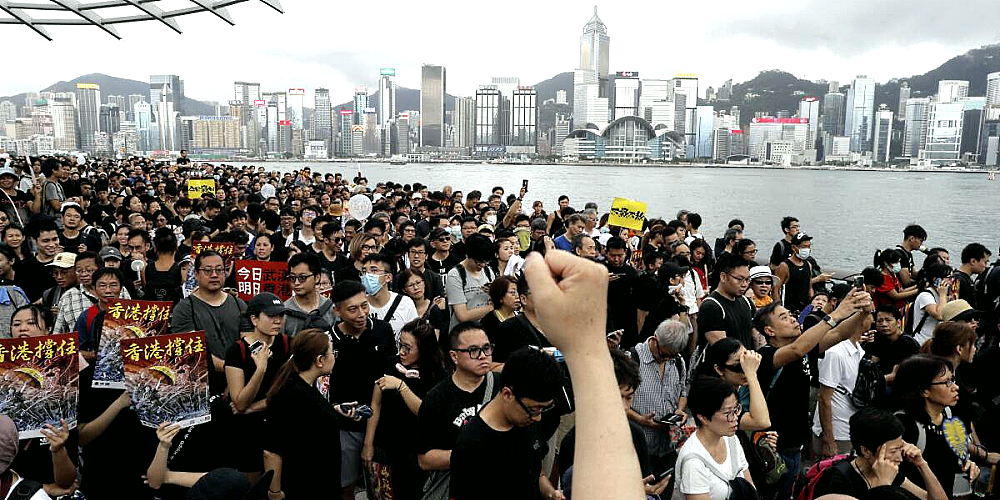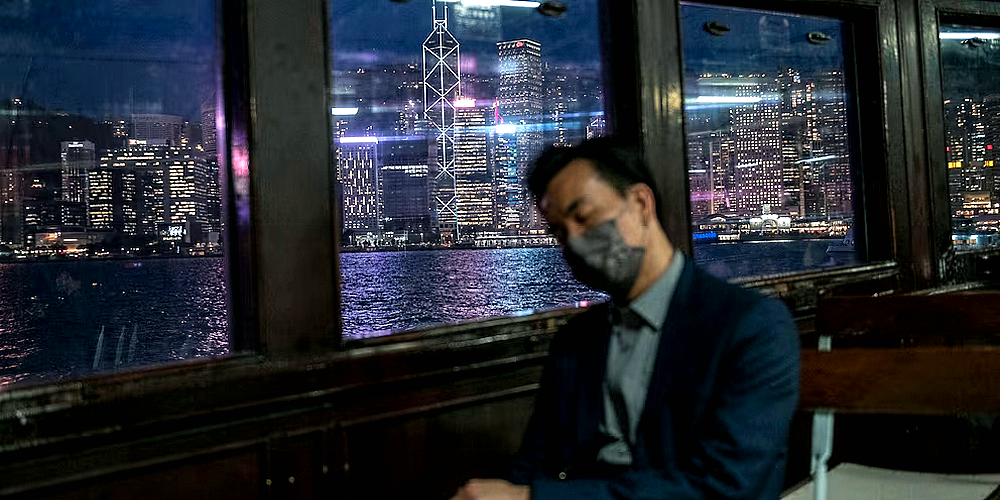
HONG KONG: The exodus of tens of thousands of professionals from Hong Kong triggered by a crackdown on its civil liberties is being offset by new arrivals: mainland Chinese keen to move to the former British colony.
The Asian financial hub has attracted tens of thousands of visa applications from mainland Chinese under the Top Talent Pass Scheme, a program launched in late 2022 aimed at luring high-income professionals and top global university graduates from around the world, though nine in 10 successful applicants are from China.
For mainland Chinese, Hong Kong’s unique attributes — such as wider freedom of speech and internet access, its cosmopolitan ambiance, a less oppressive work culture, and a society where ability largely trumps connections — set it apart, according to interviews by The Associated Press with 20 mainland Chinese visa holders.
Some, like Wu, a finance professional in his 20s, view moving to Hong Kong as a way to gain greater freedom and security. Wu, who asked to be identified by his surname due to fear of government retaliation, said he felt a sense of panic when he was trapped in unpredictable lockdowns in Beijing during the COVID-19 pandemic.
He was tempted to join a protest against China’s stringent COVID-19 restrictions, but opted instead to “run,” a Chinese euphemism for emigrating that became popular during the pandemic. He moved to Hong Kong during the summer.
“For now, it’s my life boat,” he said.
The leeway for public dissent has narrowed in China in recent years under leader Xi Jinping. Although they have eroded under crackdowns that followed the imposition of a 2020 national security law, Hong Kong still has Western-style civil liberties that reflect its history as a former colony. China’s communist leaders promised to let the semi-autonomous region keep those freedoms for 50 years after it returned to Chinese rule in 1997.
Wu says he shares with many Hong Kongers a desire for freedom of speech. He’s also happy it has fewer staunch nationalists, popularly known as “little pinks,” than in Beijing. He enjoys the ability to freely move his money to other countries and to be able to access the internet without having to use VPNs to circumvent the censorship that prevails in the Chinese mainland.
Since the Hong Kong government enacted the national security law, saying it was needed to restore stability following massive pro-democracy protests in 2019, many of the city’s leading activists have been prosecuted. Dozens of civil society groups have been disbanded, and outspoken media outlets like Apple Daily and Stand News have been forced to shut down.
Those political shifts, alongside strict COVID-19 controls that were lifted in Hong Kong faster than in the mainland, contributed to a decline in Hong Kong’s population from 7.5 million in mid-2019 to 7.3 million in mid-2022. International companies and banks also have been moving away.
It’s unclear how many Hong Kongers have left for good and how many departures were mainly because of the political climate. But more than 123,800 have moved to Britain and thousands of others gained permanent residency in Canada under special policies for people from Hong Kong after the security law took effect.
The talent scheme is meant to help plug that brain drain: According to the immigration department, about 37,000 applications from mainland Chinese have already been approved. It is unclear how many have already arrived in the city, which had about 135,000 mainland Chinese already residing there for less than seven years as of 2021, before the program was launched.
Many others have become permanent residents after staying in the city for more than seven years: nearly a third of the city’s residents were born in other parts of China and self-ruled Taiwan, though most of those moved to Hong Kong years ago.

Fresh graduate Zhang Guangwei, 22, said he turned down several job offers in mainland China to work as a software developer in Hong Kong, aiming to escape from China’s notorious “996” working culture, in which employees often work from 9 a.m. to 9 p.m. six days a week.
Zhang got a taste of a similar workaholic lifestyle during an internship and he’s happy his Hong Kong job only requires him to work from 9 a.m. to 6 p.m. for five days a week. That allows him spare time to hike and socialize with friends.
“If work gets too busy, then I feel it’s meaningless for me to earn money,” he said.
Most of the mid-career people interviewed by AP said they were largely motivated by Hong Kong’s wider educational opportunities for their children.
Monica Wang, a 39-year-old businesswoman who has secured a visa, was enticed by Hong Kong’s freedom of speech and its portrayal in movies and TV shows as a modern city that embraces a variety of lifestyles. Hungry for new career options, she hopes to relocate to Hong Kong from the nearby city of Zhuhai.
“I want to see more about the world and I also hope my children can,” she said.
Most people interviewed by AP appeared undeterred by the narrowing of leeway for dissent and free speech in Hong Kong, which still enjoys wider freedoms than can be found across the border in mainland China. Wang said she viewed the security law as a way to make the city safer.
Though the new arrivals may alleviate the brain drain in some areas like finance, they may not fully make up for the loss of talent across various sectors, said Simon Lee, an honorary fellow at the Chinese University of Hong Kong’s Asia-Pacific Institute of Business. The medical sector has lost some “quite experienced” professionals who can’t be easily replaced by doctors who haven’t been trained locally, he said.
Experts are unsure how the influx of mainland Chinese might shape the city’s future given the dynamic interactions between new arrivals and Hong Kong natives. Although not all newcomers can speak Cantonese — the mother tongue of many Hong Kongers — some of them can secure a job quickly as Mandarin has become an increasingly prominent language in the city after the 1997 handover.
Hong Kong has been absorbing migrants from the rest of China ever since it was a fishing village centuries ago, and while many were refugees fleeing civil war, poverty or communism, many others came simply in search of better opportunities than they could find back home.
Such factors are playing out in the lives of new arrivals like Wu, the finance professional.
He says he finds his local friends and Hong Kong media outlets have become more cautious since he arrived. If the government tightens controls and the political atmosphere becomes too suffocating, Wu said he plans to try to stay for the seven years required to get permanent residency. After that, he said, “there’s a high probability that I will leave.”
ADVERTISEMENT
ADVERTISEMENT








































